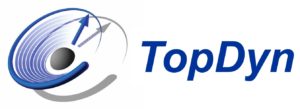

Seminar über die Physik der kondensierten Materie (SFB/TRR173 Spin+X und SFB/TR288 Kolloquium, TopDyn-Seminar)
Feb. 2, 2012 at
4:30 p.m.
in
Staudinger-Hörsaal, MPI-P, Ackermannweg 10
Univ-Prof. Dr. Jure Demsar
Univ.-Prof. Dr. Hans-Joachim Elmers
Univ.-Prof. Dr. Mathias Kläui
Univ.-Prof. Dr. Thomas Palberg
Organic Building Blocks for Spin Networks and Charge Transfer Complexes
Prof. Dr. Martin Baumgarten (MPI für Polymerforschung, Mainz)
Organic molecules can be designed and functionalized by will to fulfil the purpose of fine tuning properties for applications in many fields. This lecture focuses on two major examples relevant for the TR49, namely organic biradicals for spin networks and strong donor and acceptor molecules for charge transfer (CT) complexes.
<p> In this vein we have synthesized and investigated a series of new bis(nitronyl nitroxide) and bis (iminonitroxide) radicals with variable and controlled intramolecular exchange interactions. The general interest in such biradicals arose from their potential application as building blocks for the design of new quantum magnets. Since the exchange interaction is adjusted to match the external magnetic field, the spin multiplicity can be switched from zero to one, providing molecular model systems for interacting boson gases.
<p> In the second part of the lecture the synthesis of new donor and acceptor molecules based on polycyclic aromatic hydrocarbons (PAHs) will be described. Modification of the same PAH can provide either donors or acceptors which are perfectly matched in size. Their HOMOs and LUMOs can be fine tuned to optimize the potentials for the formation of CT complexes. Several CT complexes could be crystallized, showing alternating stack structures, and their mixed valency was verified by HAXPES and NEXAFS (G. Schoenhense). Further combinations of donors and acceptors leading to a promising neutral ionic phase transition will be tested for crystallization.